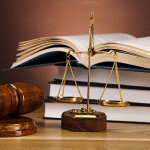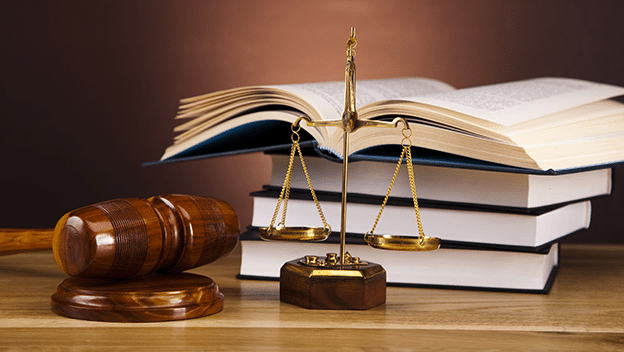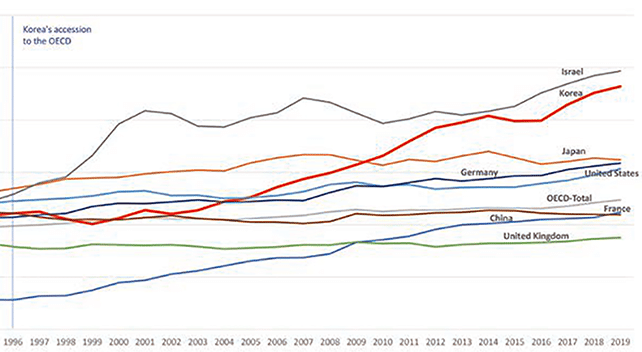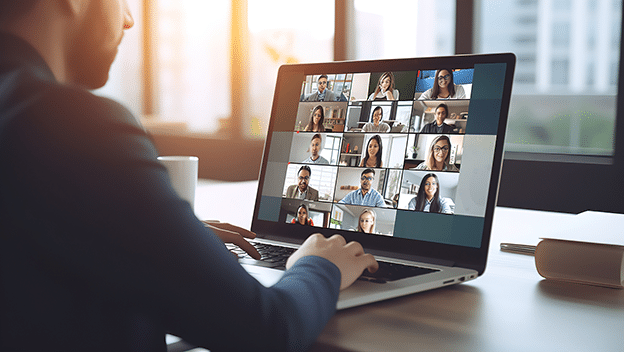Trial Prep Considerations

AI and GenAI in LegalTech
March 28, 2024
Many legal professionals are proficiently familiar with the discovery portion of matters since this work, which involves collecting and managing hundreds of gigabytes, sometimes terabytes, of data, can be quite arduous and require tight collaborative support from highly organized eDiscovery specialists. In comparison, however, the equally critical process of preparing for trial that lawyers manage upon filing a case is not as universally known to the eDiscovery community since these tasks and workflows are typically administered and overseen by different legal case teams.
With this in mind, we thought it would be useful to provide some insight into the work required to effectively prepare a case for trial. Although this article will primarily focus on the various requirements and considerations associated with trial preparation, we will begin by providing a brief walk-through of the discovery process since this phase is essentially how information is procured and exchanged with opposing parties, which can largely influence trial prep activities as matters move closer to trial.
What Does the Discovery Process Entail?
The discovery process involves exactly what it implies: “discovering” evidence to prepare your case for trial, and also “discovering” evidence that the other party will present at trial, so you can be prepared to counter it. Parties in litigation have several tools at their disposal during the discovery phase, which most commonly consist of the four listed below with brief descriptions next to each:
- Interrogatories – These are a set of written questions that are sent to the opposing party of a case. The opposing party is required to answer these questions and affirm under oath that the answers given are true. The questions can be very specific as to dates, times, description of events, identification of witnesses, etc., and may also seek subjective information, such as why you think you should win your case.
- Request for Document Production – This request requires the opposing party to produce all documents that are relevant to the issues in the case. The documents in scope typically include email, and in general, will vary by case as this request is designed to obtain any type of data that may contain information pertinent to the case.
- Request for Document Production to a Non-Party – This discovery tool is the request for production of documents sent to “nonparties”. Nonparties are individuals or places of business not involved in your litigation matter, but who possess documents that may contain relevant information to the issues in the case. Common targets of nonparty discovery are banks, telephone companies, medical care providers and social media organizations.
- Depositions – A deposition is a sworn statement of a party or witness given in the presence of a court reporter. The court reporter records the questions asked of and answered by the witness. The court reporter then converts this recording into a written transcript of testimony that can be used at trial to hold the witness to the same testimony he or she gave in the deposition. Depositions are a powerful and important tool in the preparation of any case for trial, and therefore, should be carefully strategized and agreed upon by the attorney and client.
The discovery phase can be demanding and frustrating with few of the necessary processes in this initial stage following linear, straightforward paths. Document review, for example, is an ongoing process with most discovery executed on a rolling basis, so the production of evidence could still be in progress as you start to take depositions. As such, it is important to recognize that the discovery process, as a whole, contains activities with inherent degrees of unpredictability, which serve to underscore the importance of understanding all facets of discovery as success can often turn on the thoroughness with which these processes were completed.
When Should You Start Preparing for Trial?
While it is a fact that in modern law many litigators never actually try a case, it is wise for legal teams to begin developing a foundational strategy for trial preparation once it becomes evident there is a good chance the case may be headed for trial. The preparation needed to determine if trial will be necessary is vastly lower than the preparation needed to actually try a case. As a result, it is no surprise that many litigators suggest that trial preparation processes should begin, at least in part, no less than three months before the start of trial.
However, there are outlier “bet the company” type cases that may warrant beginning your trial prep a half-year (or more) before trial. Conversely, really small cases may be just fine with a month or two of trial prep. This timeframe will always depend on the case particulars, but three months is generally a good frame of reference for many (though not all) cases.
Your trial presentation strategy should start to take shape during the review phase, in which claims and relevancy material are usually identified, and patterns and themes begin to emerge, which collectively help form a timeline of events so you can begin subsequent tasks such as determining which witnesses will support the story you are trying to tell.
As responsive documents are identified, the review team will continuously work to solidify the broad themes uncovered and identify important custodians, deponents, main characters and the relevant timespan of events.
The volume of relevant documents can be enormous in the review phase, but as you move into the trial presentation phase this data will be whittled down considerably as you endeavor to identify key documents that will outline case themes and support a coherent, compelling story.
What does Trial Preparation Entail?
After the discovery process is complete, legal teams must engage in thorough trial preparation to ensure they are well-equipped to present their case effectively in court. Below are some key considerations grouped in sections beginning three months out from the start of trial, generally considered the minimum amount of time needed to effectively prepare for trial:
Three months to trial the following items should be prioritized for completion:
- Meet with clients and experts to go over issues, costs, options and expectations.
- Secure witnesses and their availability for trial and determine what expert witnesses will need to testify to.
- Begin assembling key evidence.
- Consider the trial technology needed to present your case and familiarize the team accordingly, which may include presentation software, document viewers and electronic displays.
- Conduct a technology test to identify and address potential issues before trial.
Two months to trial legal teams should:
- Issue subpoenas for all witnesses to testify.
- Serve notices to appear and produce documents.
- Create an outline/trial roadmap of what will occur during trial in chronological order.
- Put together outlines for witness examinations & exhibits and coordinate how witnesses will be presented.
One month to trial legal teams will need to:
- Meet with clients to prepare their testimony by providing prior responses for reference.
- Account for all witness depositions in case any are needed at trial.
- Prepare all witnesses and experts for their upcoming testimony by ensuring they are familiar with the trial process. The following are other essential witness prep activities:
- Conduct mock examinations that include actual questions that will be asked.
- Address potential areas of weakness in a witness's testimony and develop strategies to mitigate them.
- Provide experts with relevant case materials and create a comprehensive outline of the expert's testimony.
- Outline all elements that will bolster your trial narrative:
- Conduct a thorough review of applicable legal precedents and case law.
- Identify key legal arguments and principles that support your case.
- Prepare briefs on all legal issues to anticipate potential legal arguments from the opposing party so you may prepare responses.
- Be ready to make timely and effective objections during trial, as needed.
- Prepare a trial brief – A comprehensive narrative of the pleadings, the admissions and denials, the issues of fact, issues of law, your expected proof in logical order and theory of the law.
- Organize and prepare all exhibits and demonstratives that will be presented during trial.
- Ensure all exhibits are properly authenticated and admissible.
- Practice the introduction of exhibits to ensure a smooth presentation.
- Write compelling and concise opening and closing statements.
- Practice delivering these statements to refine the presentation.
- Jury Selection & Instructions:
- Develop a strategy for jury selection by considering demographics and potential biases of the jury pool.
- Prepare a list of questions to ask potential jurors.
- Write jury instructions to identify the legal issues that need to be addressed.
- Post-Discovery Investigation – Continue investigating new leads or evidence that may emerge late in the discovery process.
Effective trial preparation is critical for presenting a strong and persuasive case in court. By addressing the above listed considerations, legal teams can enhance their readiness and increase the likelihood of a favorable outcome.
Leveraging Technology and eDiscovery Partners
Technology can enhance and simplify nearly every aspect of a court case, from the organization of materials during trial preparation to the questioning of witnesses in court. Therefore, legal teams should explore every available tool that can increase efficiency and mitigate the risk of overlooking important items. Technology, for example, that enables real-time collaboration in a single, secure location eliminates issues with version control, allows teams to present arguments in an organized manner, and provides legal teams with the required technological support to build a convincing case.
On this topic, Edward Rippey, a Partner at Covington & Burling LLP, noted:
“Technology that facilitates the search of exhibits or simplifies the ability to quickly edit documents can yield significant efficiencies during trial prep as trial teams collaboratively manage unforeseen developments.
Additionally, at this stage, trial teams frequently rely on prior experience when sourcing a vendor to provide technology. However, it is still important to keep the relevant eDiscovery vendor informed on the status of the case since their immediate support may be required to search non-exhibit files or other data in connection with filing a motion due in court the next day.
Leveraging the right technology will help you keep pace with the opposition and, more importantly, will ensure the trial team stays laser focused on achieving success based on the actual facts and legal arguments of the case.”
Final Thoughts and Considerations Regarding Trial Preparation
The prior section shared a few perspectives on effectively utilizing technology to managing trial prep workflows and related tasks, and below are a few more takeaways that summarize essential action legal teams should engage in when preparing for trial:
Plan Thoroughly – Detailed and meticulous preparation is the foundation on which a winning case is built. Without thoughtful preparation, even the best attorney can be taken by surprise and rendered unable to effectively argue a client’s case. Tools to aid in preparation and help with organizing and planning are especially beneficial for attorneys who want to leave nothing to chance.
Ensure Effective Communication – Communication among all team members that have a hand in preparing for trial promotes transparency, accountability and responsibility, particularly as issues arise and require support. When collaborators lack the tools to communicate efficiently, this leads to additional costs and burdens to legal teams and clients. An effective trial preparation platform negates the concern of insufficient communication, by, for example, providing a central location for litigators to upload critical documents into a timeline annotated with people and events. The ability to collaborate in real time, whether remote or in-office, is vital for effective communication during trial prep.
Prepare Your Witnesses – Being called to the witness stand, sworn in, and asked pointed questions can be a stressful situation. Preparing witnesses ahead of time by putting them through questions and mock cross-examination is a good way to alleviate distress while taking the stand. Simulating a courtroom scenario helps everyone involved understand how to respond, and gives the attorney the best chance for success with the jury.
Build a Strong Story – Crafting a strong narrative is an important part of trial preparation. In the end, the strength of your client’s case is directly linked to the story the attorney tells, regardless of exhibits, expert testimony or any of the other details that make up a case. If the story is feasible, believable, and memorable, it is much more likely the judge and jury will look at it favorably. In contrast, if an attorney does not present the case well, neither the judge nor the jury are likely to give a lot of credence to the evidence that was presented.
In closing, it is unfortunate that trial preparation work is sometimes mis-prioritized by legal teams since most cases today are likely to settle or end in a summary judgment. On the other hand, it is also understandable given the additional expense that trial preparation activities can incur to a client’s bottom line. Nevertheless, it is good practice for legal teams to begin thinking about trial preparation as early as is practical for your case, so that you may begin to organize the various facts and key points on the off chance that your matter is one of the few that ultimately heads for trial.
As renowned author, Stephen King, once said, “There's no harm in hoping for the best as long as you're prepared for the worst”, which is a simple yet relatable way to think about the need to keep trial prep in mind, and can also apply to many other things outside of eDiscovery!
Sources:
-
Trial Preparation Series - 1 of 3
https://www.jdsupra.com/legalnews/trial-preparation-101-strategies-for-2697190/ -
Helpful Information About The Discovery Process
https://www.awmlaw.com/articles-by-our-attorneys/articles-of-general-interest/understanding-the-discovery-process/ -
The Time To Prepare for Trial Is Long Before Trial
https://www.gregoryforman.com/blog/2017/05/the-time-to-prepare-for-trial-is-long-before-trial/ -
Trial Preparation Complete Guide
https://www.everlaw.com/blog/ediscovery-best-practices/trial-preparation-complete-guide/
ディスカバリプロセスに比べあまり知られていない米国のトライアルの準備は幅広く徹底した作業が必要なため、一般的におおよそ3か月を要します。Covington & Burling LLPのパートナーであるEdward Rippey弁護士は、「トライアルの準備段階において迅速なサポートが必要になる可能性があるため、関連するeDiscoveryベンダーに訴訟の状況を知らせておくことは重要である。また検索や編集機能を簡素化するテクノロジーの活用により相手側と歩調を合わせることができ、事実証拠と法的論拠に基づく説得力のある訴訟の提起に集中することができる。」と述べています。
米国では昨今和解やディスカバリ、略式判決で終わることがほとんどとはいえ、最悪の事態に備え、こうしたトライアルの準備を念頭におくことが必要だと考えられます。
About Edward H. Rippey, Partner, Covington & Burling LLP
Ed Rippey is a Partner at the global law firm Covington & Burling in Washington, DC. Mr. Rippey is the Chair of its E-Discovery, AI, and Information Governance Practice. He represents enormous multinational corporations on e-discovery and artificial intelligence in litigations and investigations, and also advises on information governance during peacetime to optimize legal and business positioning. Mr. Rippey is a pioneer in this arena and has given scores of presentations and has published scores of articles domestically and internationally. He is consistently ranked in Litigation E-Discovery in Chambers Global, Chambers USA, Who's Who Legal, and Super Lawyers. The Chambers rankings have noted that Mr. Rippey is a "savvy and forward-thinking" litigator who "combines specific knowledge with dynamite litigation skills and case oversight." In addition, Mr. Rippey is the Co-Chair of Covington & Burling's Gaming Industry Practice and represents integrated resorts and casinos, game manufacturers, and on-line entities worldwide.
About Covington & Burling LLP
Covington Burling LLP was founded in Washington, DC in 1919 and currently has 13 offices worldwide. With over 1,200 internationally renowned and professional lawyers, our responsiveness to provide outstanding legal services and strategic advice is highly regarded. With over 100 senior government officials, he is not only familiar with the fields of corporate law, litigation and investigation, but also his deep insight into policy and policy makers and the quality of comprehensive regulatory advisory services. The height has a good reputation all over the world.
It has been selected as one of the "100 Global Elites Selected by GCR" many times in the past from the Global Competition Review, and has been selected as one of the world's top 2015 antitrust laws every year from 19 to 20.In addition to being repeatedly named on the "A List" by American Lawyers, he has been ranked in the Top 25 in the US in the General Counseling category of Americas Best Corporate Law Firm by Corporate Board Members.
We have as clients many Japanese companies, trade organizations, and government agencies, and through the Japan Department, we are working to further deepen our relationship with Japan and respond to more accurate needs. https://www.cov.com/




